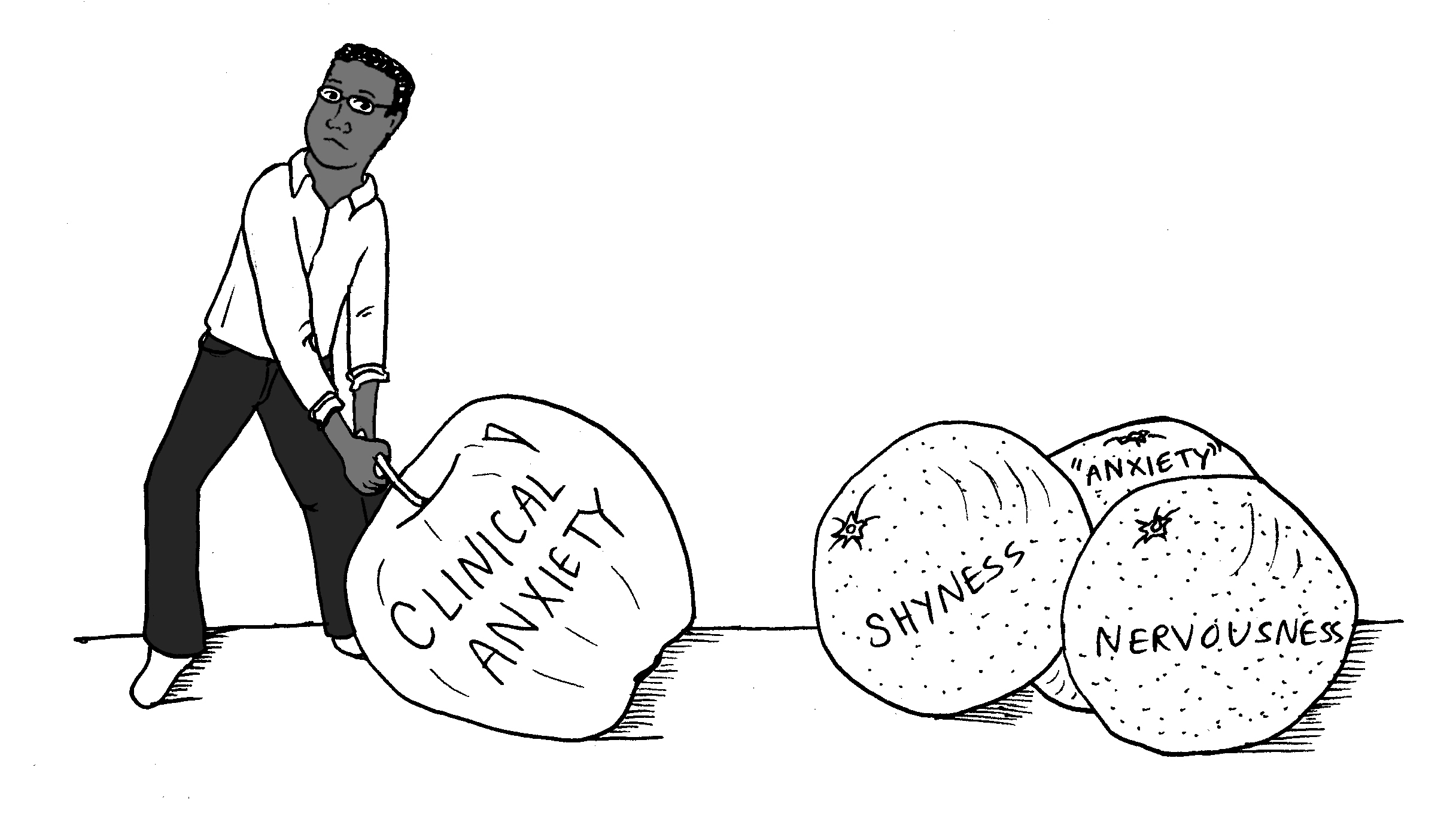International undermining of anxiety disorder
March 31, 2017
 This
piece represents the opinion of the author
.
This
piece represents the opinion of the author
.
 Diana Furukawa
Diana FurukawaAmong many things, I often regard my adolescence as a self-discovery of my anxiety. My parents were raised in Ghana, where mental health disorders, specifically social anxiety, are often an unspoken topic.
Thus, the country is devoid of any semblance of mental institutionalism. This absence is grounded in a firm disbelief of mental disorders beyond the scope of subjectivity. As a result, my parents grew up with an indifference towards mental disorders.
Growing up in my Ghanaian enclave, we often lacked the necessary words to verbalize anxiety as anything more than shyness. Instead, I was often considered to be shy and people disregarded the potential of having an anxiety disorder. In other words, the personality trait of shyness was more comprehensible than an anxiety disorder. While this relegation of anxiety as shyness is a result of the absence of language and of mental institutionalism, it nonetheless undermines the nature of social anxiety.
When someone is considered to be shy or nervous about a particular event, they are urged to overcome that particular fear. Social anxiety can often be complex—thus necessitating specialized language to account for the disorder.
The absence of language to account for mental disorders in Ghana does not indicate the absence of mental disorders. The disorders still exist but are confined to limited personality traits.
Although mental institutionalism is prevalent within the United States, there still exists a similar tendency in America to undermine social anxiety disorder. The prevalence of mental institutionalism does not mean undermining anxiety is a non-issue. However, this undermining is not a result of the lack of language so much as it is a matter of its usage.
In the US, we often refer to anxiety to describe instances of nervousness that arise before a stress-inducing event. While this usage is somewhat warranted, it belies the actual disorder. The anxiety that arises on the eve before my final exam is much different than the perpetual anxiety I face when having conversations with people.
This language ostensibly proclaims anxiety to be a universal experience. Thus, the language constructs a standard of anxiety. If we all experience anxiety, then we begin to perceive those who are able to overcome their moments of “anxiety” as being superior to those who are debilitated by an anxiety disorder.
While we all get anxiety from stress-related events, anxiety disorders are usually based upon irrational fears or over the trepidation of something one perceives to be a far greater threat than it actually is. Moreover, the disorder can manifest in a variety of ways, including social phobia, panic attacks and generalized anxiety disorder.
The issue arises when our careless use of language conflates the disorder with the temporary state of heightened nerves.
We regularly speak of anxiety in the United States not within the framework of the disorder but as a temporal state of nervousness. In doing this, we undermine anxiety disorder. Meanwhile, the absence of discourse surrounding mental health and mental institutionalism in Ghana contributes to the undermining of anxiety disorder.
In our growing awareness of mental disorders, we must keep in mind that how we talk about them is equally as important as whether we talk about them at all.

Comments
Before submitting a comment, please review our comment policy. Some key points from the policy: